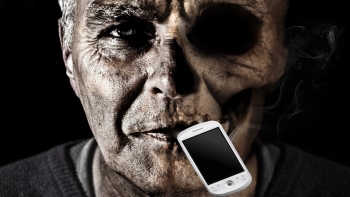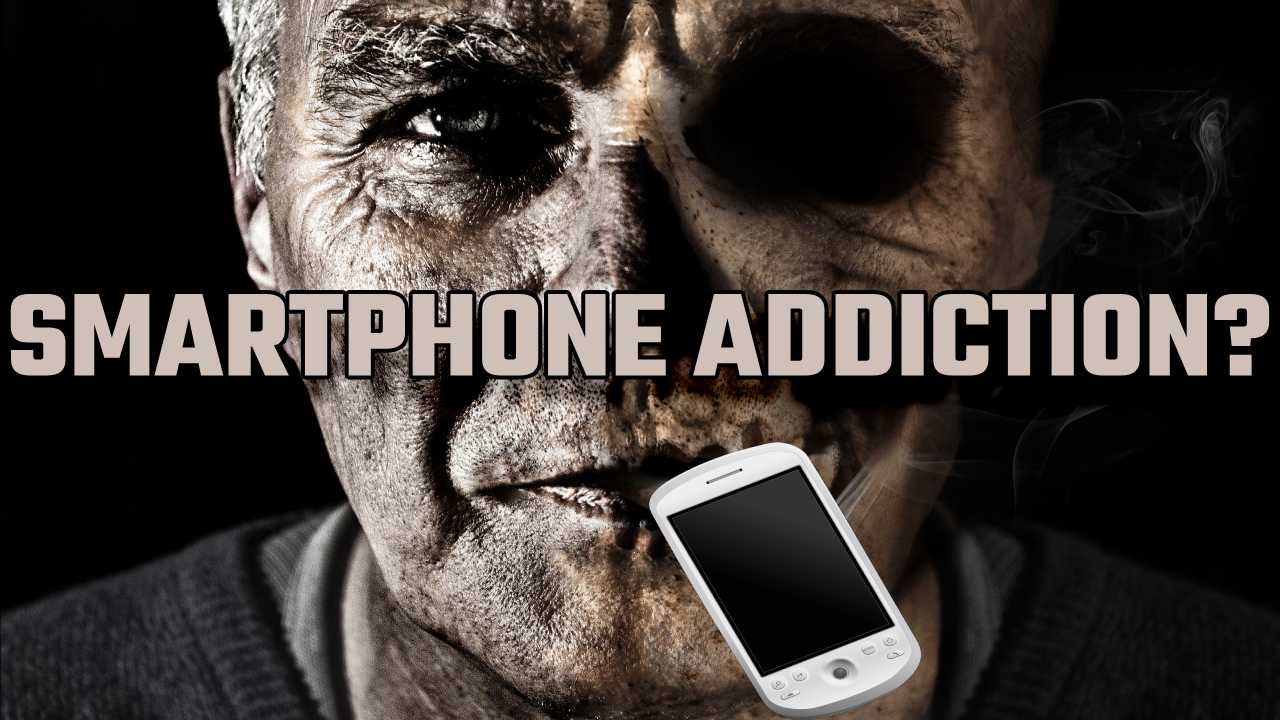Wed, 14 March 2018
Not literally, but that twitchy connection to your phone? It definitely affects your abilities to concentrate and think deeply. And that means device addiction harms your ability to remember. Worse: Smartphone addiction not only turns you into a social pariah…
It Can Also Be Fatal!
In 2015, distracted driving (due to texting or talking on the cellphone) killed 3,477 people and injured another 391,000. And there’s more bad news… According to the National Safety Council, using cell phones while driving can make you more accident prone than even drunk driving… No wonder people are concerned over how cell phones are affecting their lives! In January this year, two of Apple’s biggest shareholders wrote an open letter to the company requesting it to provide “more choices and tools” so that parents could restrict their children’s smartphone usage time. The letter added that researchers have found this shocking statistic: “U.S. teenagers who spend 3 hours a day or more on electronic devices are 35 percent more likely, and those who spend 5 hours or more are 71 percent more likely, to have a risk factor for suicide than those who spend less than 1 hour.” Smartphone addiction is a serious issue and may need some creative problem solving using the C.R.E.A.T.E. formula: But here’s the real question: What about YOU? Are you displaying cell phone addiction symptoms? Let’s find out:
Are You A Nomophobic?
I know you will never admit it, but when you are unable to find your phone for even 30 seconds, it causes a minor anxiety attack. How do I know this? Because it happens to people every single second of the day. Look at this poor fellow: So, is he a nomophobic? Absolutely! Nomophobia or ‘NO MObile PHOne phoBIA’ is the fear of not being able to use your cell phone or have access to your device. Want to know if you’re truly addicted? Take this online quiz to find out. Nomophobia is real, but the medical community is not ready to declare overuse of cell phones as a clinical addiction.
Ignoring The Data?
They neglect to do so in the face of some shocking data. As the Joker suggests (I misquote), “whatever doesn’t kill us, only makes us stranger”…
Nearly one in ten people admitted to using their smartphones during sex, in the shower, on a movie date, in church or other place of worship, as per the 2013 Mobile Consumer Habits. What’s more, nearly three-quarters of the respondents said that they were always within five feet of their smartphones. Although doctors do agree that if you can’t stop using your phone, even when it’s harming your life, you may be “addicted.”
“Only a small percentage of people qualify as addicted. But many people overuse their smartphones.” This quote comes from Dr. David Greenfield, assistant clinical professor of psychiatry at the University of Connecticut and founder of the Center for Internet and Technology Addiction. Smartphone addiction is not listed as an official mental disorder listed in the Diagnostic and Statistical Manual of Mental Disorders. However, psychologists are debating about whether that should change. Some researchers also say that the development of smartphone addiction is similar to that of a gambling disorder (or gambling addiction), which is included in the Diagnostic and Statistical Manual of Mental Disorders. How does addiction work?
With gambling, the reward of winning once in a while is what hooks people to the habit. Smartphone addiction works on a similar principle. Most of the time, a phone notification will be insignificant. However, every once in a while…
Something Meaningful Happens!
Like a phone call from an old friend, or a Facebook notification that someone has tagged you in a photo. Researchers say this type of messages are irresistible and can lead to overuse or addiction to your device. There’s more… Device addiction can extend far beyond just the smartphone. Recently, the World Health Organization announced that video game addiction will now be classified as an official mental health condition in the 11th revision of the International Classification of Diseases. According to the WHO, gaming disorder is “characterized by a pattern of persistent or recurrent gaming behavior manifested by: 1) impaired control over gaming (e.g., onset, frequency, intensity, duration, termination, context); 2) increasing priority given to gaming to the extent that gaming takes precedence over other life interests and daily activities; and 3) continuation or escalation of gaming despite the occurrence of negative consequences.” “The behavior pattern is of sufficient severity to result in significant impairment in personal, family, social, educational, occupational or other important areas of functioning,” WHO adds. Whether it is to play video games or check your Facebook notifications, here’s the truth: Spending too much time with your smartphone will slowly but surely harm your mind.
How Smartphone Addiction Damages Your Memory
For starters, the presence of smartphone alerts is disrupting our already weak ability to focus on the task at hand. Moreover, excessive use of cell phones also causes headaches, impaired concentration and memory, and fatigue. If you are constantly using your mobile phone to surf the internet it affects the brain’s frontal lobe and brainstem functions, resulting in decreased ability to speak, reason and comprehend social cues. Researchers also found that smartphone addiction can lead to an imbalance in brain chemistry that triggers depression and anxiety.
Ultimately, smartphone addiction can impair your ability to interact in the real world to the detriment of your personal and professional relationships.
It’s Not Just Brain Damage
Smartphone addiction does more than alter your brain chemicals. Your posture also gets affected when you use your phone all the time. And according to the National Center for Biotechnology Information, posture affects mood, behavior and memory. Therefore, frequent slouching to look at your device screen can make you depressed. What’s more, Researchers at the University of Michigan state that the tucking your chin (or chins) and hanging your head to look at the smartphone is also causing empathy levels to fall and narcissism to rise among individuals.
A Reliable, Easy & Fun Way To Learn Things |
The Magnetic Memory Method Podcast

Categories
generalMemory Improvement Tools
Memory Method Tips
Brain Exercises for Memory Improvement
Memory Improvement Case Studies
Podcast
Guest Post
Memory Palace Tactics
Practical Memory Techniques
Uncategorized
Improve Memory Q&A
Archives
AprilMarch
February
January
December
November
October
September
August
July
June
May
April
March
February
January
December
November
October
September
August
July
June
May
April
March
February
January
December
November
October
September
August
July
June
May
April
March
February
January
December
November
October
September
August
July
June
May
April
March
February
January
December
November
October
September
August
June
May
April
March
February
January
December
November
October
September
August
July
June
May
April
March
February
January
December
November
October
September
August
July
June
May
April
March
February
January
December
November
October
September
August
July
June
May
April
March
February
January
December
November
October
September
August
July
June
May
April
March
February
January
December
November
October
September
August
July
June
May
April
March
February
January
December
November
September
| S | M | T | W | T | F | S |
|---|---|---|---|---|---|---|
| 1 | 2 | 3 | 4 | 5 | 6 | |
| 7 | 8 | 9 | 10 | 11 | 12 | 13 |
| 14 | 15 | 16 | 17 | 18 | 19 | 20 |
| 21 | 22 | 23 | 24 | 25 | 26 | 27 |
| 28 | 29 | 30 | ||||
Syndication

 Can smartphone addiction fry your brain cells?
Can smartphone addiction fry your brain cells?





